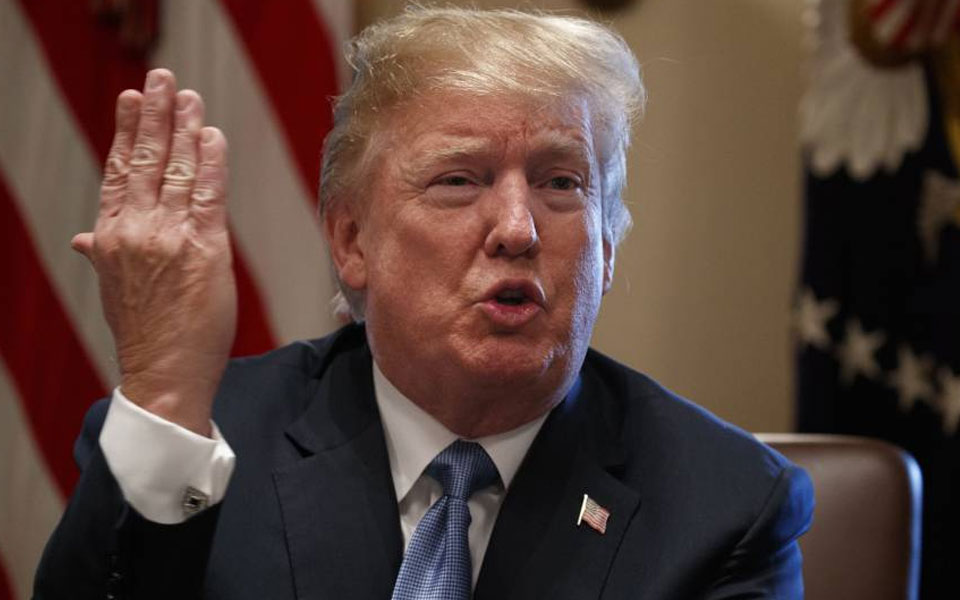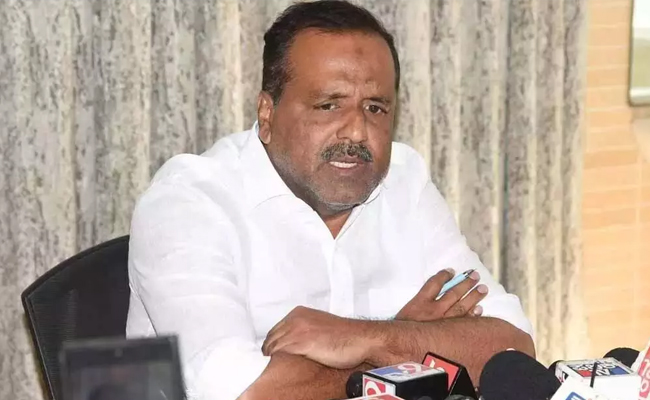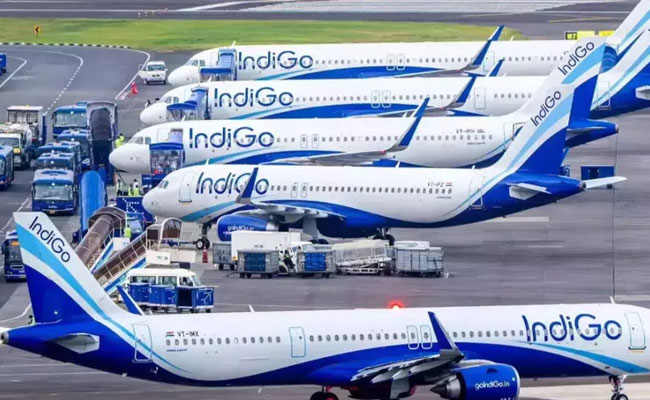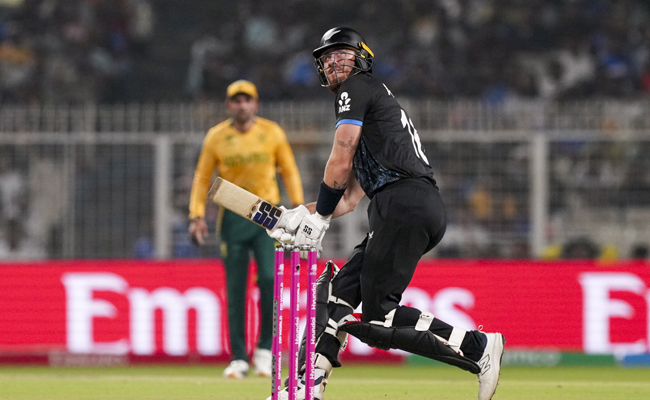Washington, Oct 23: US President Donald Trump has said he was "not satisfied" with the response of Riyadh over the death of dissident journalist Jamal Khashoggi in a Saudi consulate in Turkey.
The president also said a group of US officials are in Saudi Arabia and another group of investigators in Turkey are trying to gather information on this issue.
"I am not satisfied with what I've heard," Trump told reporters at the White House before leaving for an election rally in Texas Monday.
"We will know very soon. We have tremendously talented people very well. They're coming back tonight or tomorrow and I will know very soon," he said responding to a question.
Khashoggi, a writer for The Washington Post, was killed inside the Saudi consulate in Istanbul on October 2, where he had gone to collect some papers related to his marriage.
For the first two weeks, the Government of Saudi Arabia had said Khashoggi left the consulate through the back door.
Following a global outrage, a few days ago, the Saudi government in a statement acknowledged that Khashoggi was killed in a fistfight inside the consulate and noted that an interrogation went wrong.
Except for Trump administration officials, lawmakers and think-tanks are saying that the Saudi explanation is not credible.
Trump had told reporters that he has spoken to Crown Prince Mohammed bin Salman, who wields the real power in Saudi Arabia after the King.
"We have people over in Saudi Arabia now. We have top intelligence people in Turkey. We're going to see what we have.
"I'll know a lot tomorrow, they'll be coming back either tonight or tomorrow morning," the US president said.
Responding to questions, Trump said he was against making any move on the USD 110 billion mega arms deal with the Saudis.
"I don't want to lose all of that investment that's being made in our country. I don't want to lose a million jobs, I don't want to lose USD110 billion in terms of investment, but it's really USD450 billion So that's very important, he said.
However, "we're going to get to the bottom of it", Trump said.
Calling for the release of information regarding the US intelligence community's advance knowledge of Saudi Arabia's plot to capture Khashoggi, over 50 US lawmakers, led by Indian American Ro Khanna and Mark Pocan, have written to Daniel Coats, Director of National Intelligence,
In weighing the merits of US-Saudi military cooperation, it is imperative that Members of Congress have a full, detailed grasp of the intelligence community's knowledge of Saudi actions and their potentially harmful impact on the wellbeing of US residents and citizens, as well as any US intelligence failures pertaining to Saudi activities that may have contributed to needless loss of life, the letter to Coats said.
Senator Tim Kaine, a member of the senate foreign relations and armed services committees, said Saudi Arabia's alleged murder of Khashoggi while visiting its consulate in Istanbul demonstrates a combination of brutality and lies that must not be tolerated.
After claiming that Khashoggi left the consular office on his own and that they knew nothing of his condition, the Saudis now offer up the inane lie that he was killed in a fistfight within the consulate.
"If so, where is the body? And why did they lie about their complicity in Khashoggi's death in the first place? he asked.
Senator Mike Lee called for an end to United States involvement in Saudi Arabia's war on Yemen.
Killing a United States resident is never acceptable behaviour, and the repeated failure to be honest about the incident should call into question the extent of our relationship with Saudi Arabia, Lee said.
But setting aside the extent of our alliance generally, why should we continue to support Saudi Arabia's war in Yemen when the kingdom is killing our residents and lying about it?
"It is far past time that the United States Senate had a serious debate regarding our military involvement in Saudi Arabia's war in Yemen, he said.
Let the Truth be known. If you read VB and like VB, please be a VB Supporter and Help us deliver the Truth to one and all.
Mangaluru (Karnataka) (PTI): Karnataka Legislative Assembly Speaker U T Khader on Wednesday sought an inquiry after a large number of Aadhaar cards were found on the banks of the Nethravathi River here.
The cards were found at Farangipete in Pudu village of his Mangaluru Assembly constituency.
Khader, in a note to the Project Manager of the Unique Identification Authority of India (UIDAI), Bengaluru, sought immediate intervention and necessary action against those responsible.
In the note dated March 4, he said that local residents noticed the Aadhaar cards along the riverbank on March 3.
Following information received from the public, the Pudu Gram Panchayat president and villagers collected the Aadhaar cards found scattered in the area. They subsequently brought the matter to his attention and the concerned authorities, he said.
Expressing concern over the incident, the Speaker has directed that a thorough investigation be conducted to ascertain how such a large number of Aadhaar cards ended up on the riverbank and to identify those responsible.
He instructed officials to initiate appropriate legal action through the concerned department at the earliest.





